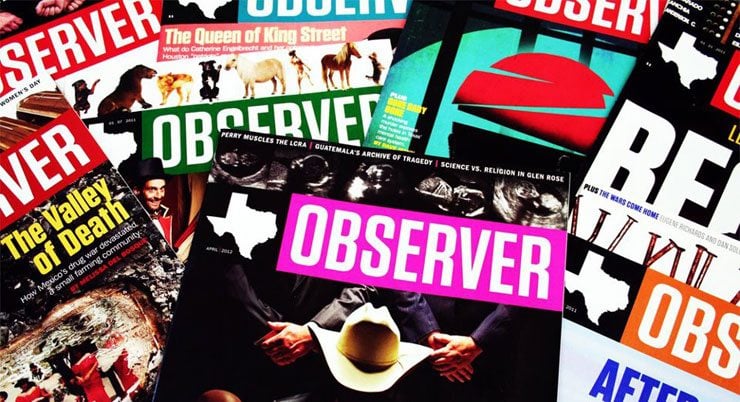Resolutions on islam should not be the focus of next week's sboe meeting
- Select a language for the TTS:
- UK English Female
- UK English Male
- US English Female
- US English Male
- Australian Female
- Australian Male
- Language selected: (auto detect) - EN

Play all audios:

I get it. It’s fun to point and laugh at the State Board of Education. Reporters don’t have to work that hard to get a whole of readers and comments. It’s fun to quip about Texas crazies, to
be a martyr if you live in Texas or thank heavens if you don’t. And there’s the added bonus: People don’t need to actually know much to join in. It’s only a problem if we’re ignoring major
news—and that’s exactly what’s happening right now. While we laugh (or cry) about the board’s culture wars, we might miss a major policy decision that’s about to get made. You may have heard
about the latest media firestorm—everyone from _USA Today_ to the _San Antonio Express-News_ has spent the last day or two excitedly reporting about a potential board resolution to ensure
textbooks are lacking “pro-Islamic/anti-Christian” bias. The resolution calls for the state board to reject any textbook that might supposedly slander Christianity or glorify Islam. Now the
resolution cites books no longer meeting the curriculum requirement. It worries about the risk of “more such discriminatory treatment of religion may occur as Middle Easterners buy into the
U.S. public school textbook oligopoly.” But, consider this: the resolution hardly matters. Although many argue it’s not actually within their power, board members have nonetheless asserted
that they can reject books for any reason—and at least in one recent incident, have exercised the power, tossing out a third grade math textbook. So for all actual purposes, the board
already has the ability to bump books that it doesn’t like. (Whether or not they legally have that power is much more debatable.) Consider, also, that even members of the social conservative
bloc—the folks that unsuccessfully pushed to require learning the “weaknesses” of evolution—aren’t happy about the resolution coming up. “There’s already enough poison politics,” said
Republican David Bradley. “This is a discussion that may need to be had, but now is not the time. It is not germane to the current work of the board.” Of course, this resolution came up
almost two months ago, when Randy Rives came to the last board meeting. Rives, who lost his bid to replace member Bob Craig in the Republican primary, read from the resolution, the board
voted on whether to discuss and, and the media largely ignored it. Because it’s just not huge news. The obvious timing didn’t stop the _Washington Post_ from speculating that board was
raising the issue as a response to the more recent controversies about koran burnings and mosque buildings. Emphasizing the resolution now has nice political benefits for folks who need to
raise money or want to reap electoral rewards for a board that’s viewed as right-wing. That would be fine—after all, good strategy is good politics—if it weren’t for the fact that the board
is actually making a big decision next. One that actually will matter to both Texas public schools and Texas taxpayers: how much money schools will get from the Permanent School Fund. Each
year, the board determines what percentage of the $22-billion fund’s returns will get paid out. This time around, we’re expecting a state budget shortfall of $18 billion—or possibly higher.
Every dollar the board sends out means a dollar the legislature doesn’t have to spend. That frees up general revenue funds in the rest of the state budget. For instance, if the board sen The
board had initially said it would give somewhere between 1.5 and 3.5 percent. “I think the one and a half percent caught some folks’ attention,” Bradley who chairs the board’s financial
committee, told me. Now, he says, the staff recommends the board send between 3 and 3.5 percent. That’s as much as $1.2 billion over two years. Then there’s another $1.1 billion that the
board owes schools—”catch-up” money from last cycle, when the fund got too low to pay out. There’s likely going to be a fight though. One of the chief purposes of the fund is to buy
materials like textbooks. However, as part of its proposed budget cuts, the Texas Education Agency has offered to postpone buying English/Language Arts books that were expected to arrive in
the fall of 2011. And you might remember the board already postponed asking for science textbook funding. And for all you people who like pre-k: pre-k materials are part of this block of
funding. So it’s not just grade school and high school kids who might have to go without. The board members will almost definitely argue with the agency and the commissioner about the
proposed cuts. The social studies books that are garnering all the attention—how we should teach Islam—aren’t going to be purchased for the foreseeable future. “History books aren’t even on
the radar screen,” says Bradley. Whether or not the resolution comes up, these issues surrounding school funding will have important repercussions, and I’m crossing my fingers they’ll get
some coverage. Even if the coverage isn’t as funny or sexy as the culture wars.